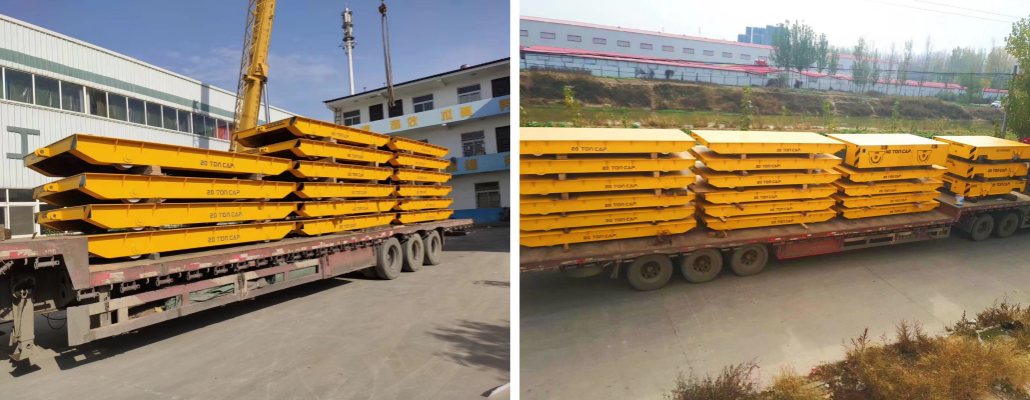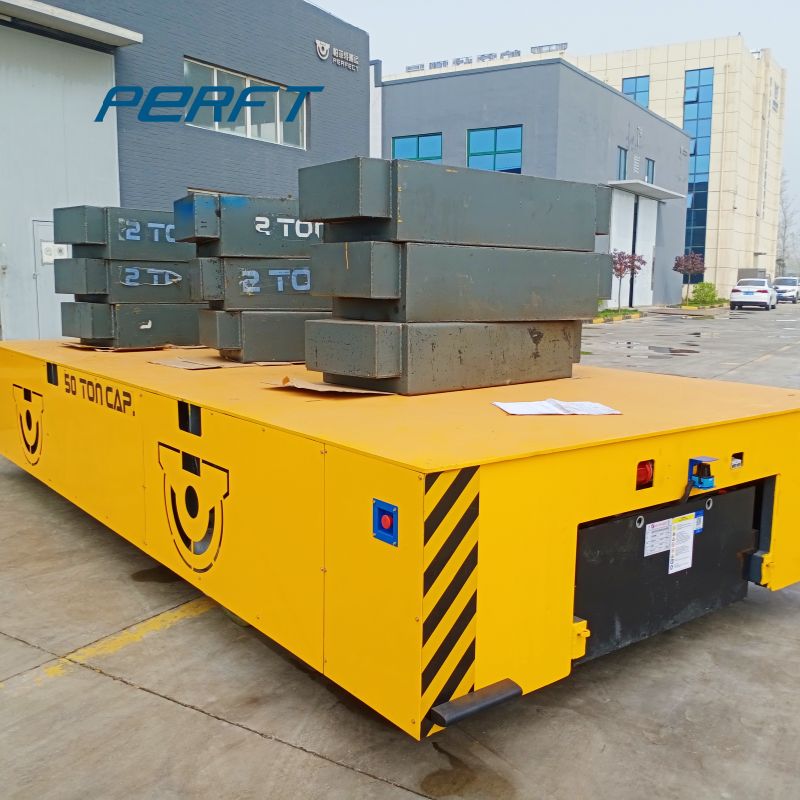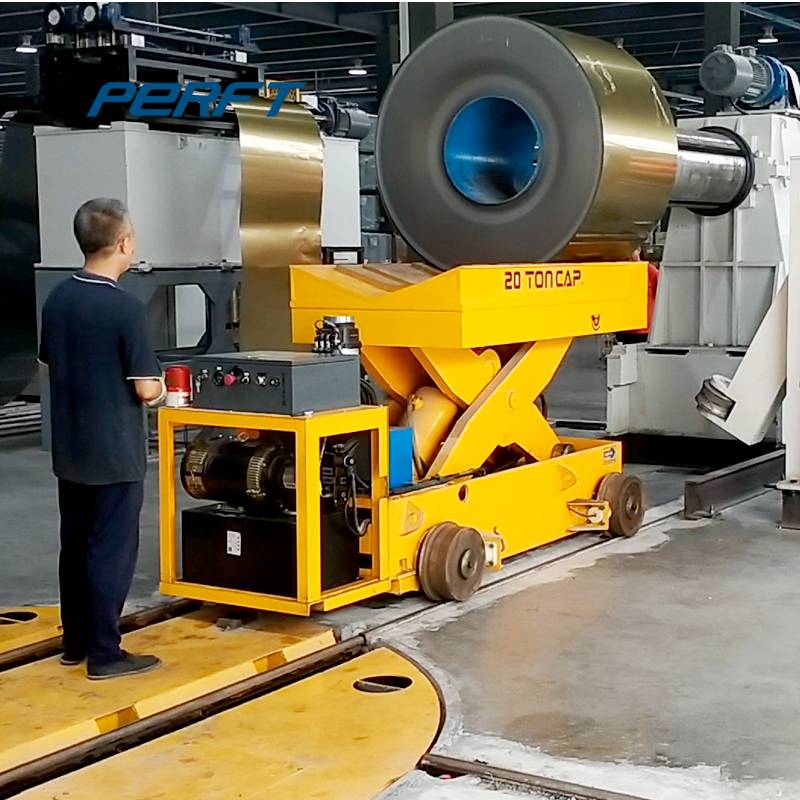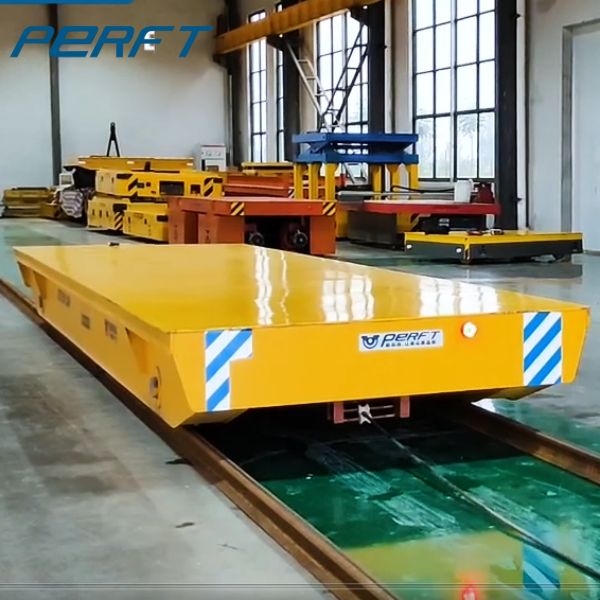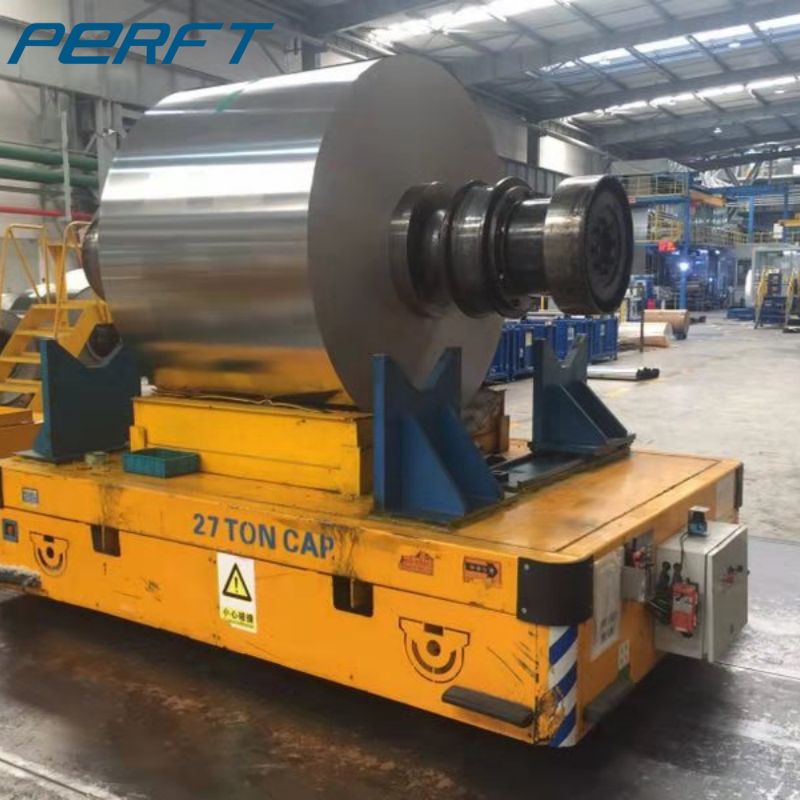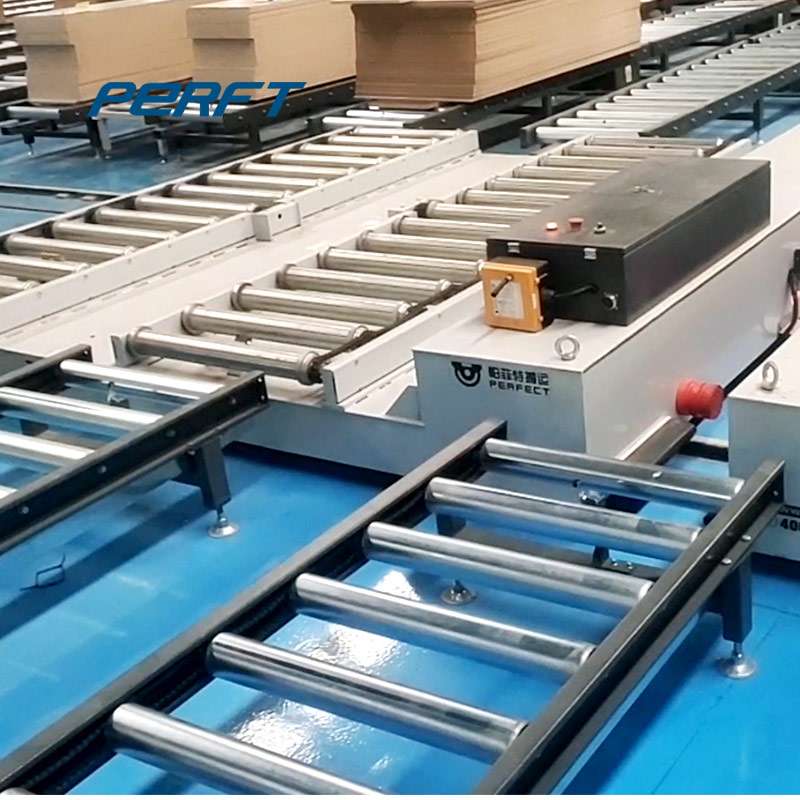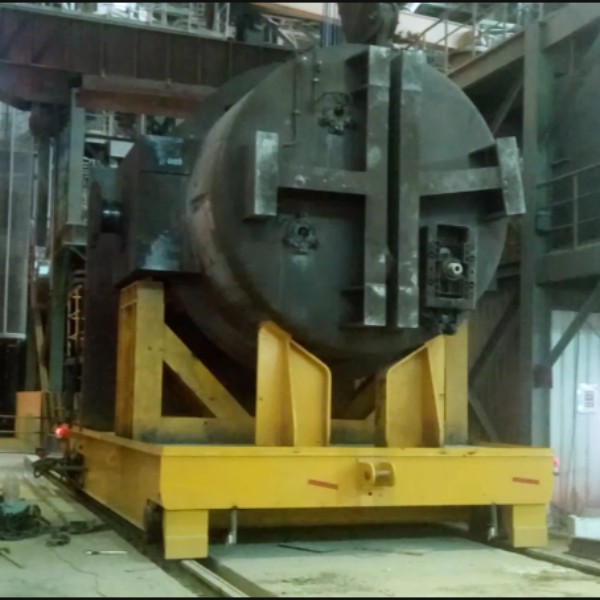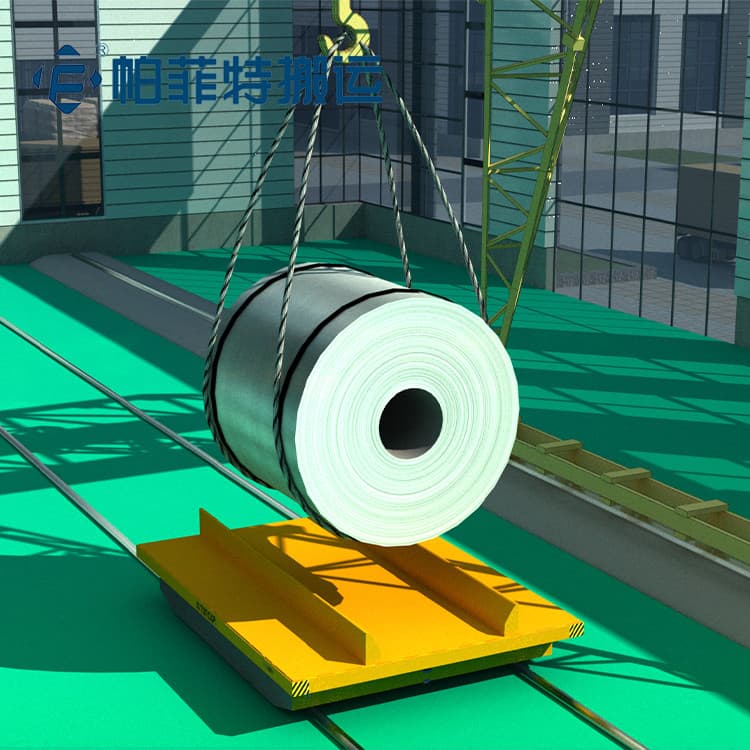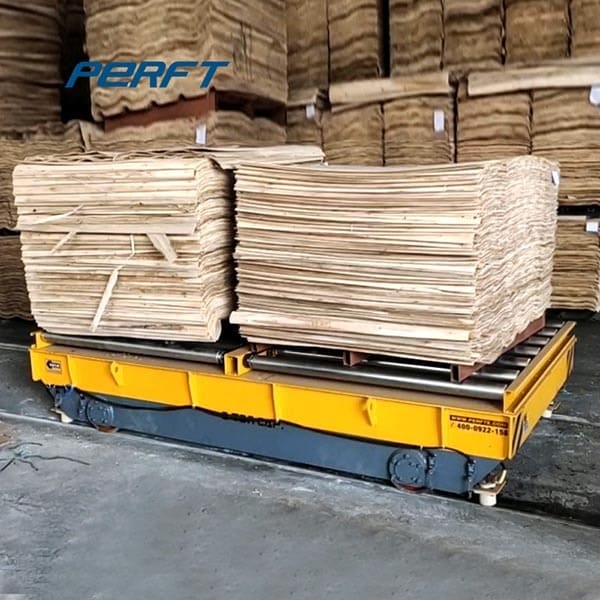Trackless Transfer Trolley Straight Line Deviation: 3 Key Causes & Solution
In the field of modern industrial automated transport, trackless transfer trolley has become an important equipment for material handling by virtue of its flexible and efficient characteristics. However, in the process of actual use, the problem of directional deviation of trackless transfer trolley when travelling in a straight line has seriously affected the transport efficiency and operational safety.
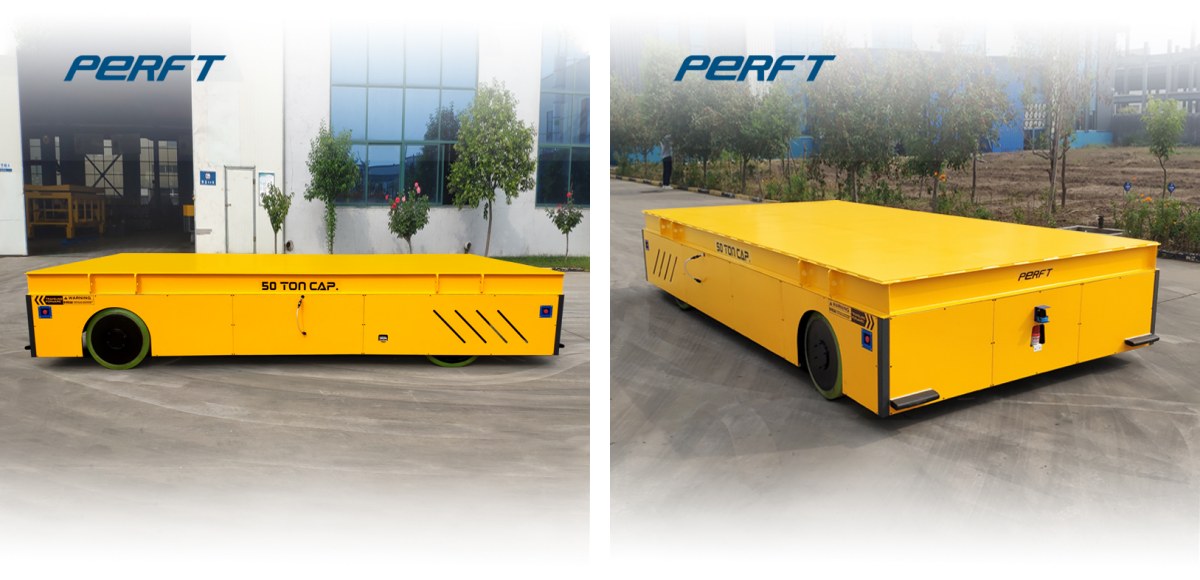
External Environmental Factors
- Ground Conditions
The ground condition of trackless transfer trolley is an important factor affecting its straight-line travelling. If the ground is uneven, transfer trolley’s driving parts of the force will experience unevenness, which will force transfer trolley to deviate from the established route. For example, the presence of bumps or depressions in the ground will cause a sudden change in the force on one side of the wheels of transfer trolley, which will lead to a shift in the direction of travel.
Slope also has a significant impact on the travel of steering transfer trolley. On a sloping road surface, transfer trolley gravity generates a split force along the slope, making it easy for transfer cart to slide in the direction of the slope during travelling, making it difficult to keep driving in a straight line.
Differences in road surface friction are an even more common cause of deflection.
In the open environment, different parts of the road surface due to material, humidity, cleanliness and other factors, the friction is not the same size. When the friction between the two active wheels of trackless transfer trolley is different, the rotational speed will be out of sync, and the phenomenon of skidding will occur, which will eventually lead to the deviation of the travelling direction.
- Potential Threats of Other Environmental Factors
In addition to the ground conditions, the weather factors in the open air environment will also have an indirect impact on the ground conditions. On rainy days, the road surface is slippery, friction is reduced, increasing the risk of transfer trolley skidding.
Dusty weather, fine particles into the wheel and ground contact parts, changing the friction distribution, may also lead to transfer cart driving direction out of control. In addition, obstacles in the environment, such as scattered materials, equipment parts, etc., if not cleared in a timely manner, may also impede electric transfer cart’s travel, resulting in directional drift.
Electric Transfer Trolley Factors
- Wheel Problem
As the parts of trackless trolleys that are in direct contact with the ground, the condition of the wheels is crucial to driving stability. Due to the manufacturing process and other reasons, there may be slight differences in the material of each wheel, and the degree of wear will be different after long-term use. Uneven wear or inconsistent wheel diameters can lead to differences in speed between the two sides of steering transfer trolley when travelling, resulting in drift.
Wheel mounting position errors should not be overlooked. If the wheel installation angle is not accurate, heavy duty transfer cart will be driven by lateral force, gradually deviating from the straight line. In addition, the bearing, as a key component of the wheel rotation, once damaged, will increase the wheel rotation resistance and instability, triggering transfer trolley travelling offset.
- Driving System Failure
Inconsistent performance of driving motors is an important reason leading to different driving forces on both sides of material transfer cart. In the operation of trackless material transfer cart, if there are differences between the two sides of the output power of the drive motor, speed and other parameters, material transfer cart will be offset to the side of the drive force is smaller.
The mismatch of transmission ratios of the drive wheelset will also make the rotation speed of the wheels on both sides inconsistent, affecting the performance of straight-line driving. Wear or failure of the drivetrain can also negatively affect material transfer cart movement. Reducer, drive shafts and other components after long-term use, there may be wear and tear, loose and other problems, resulting in poor power transmission, unable to provide balanced driving force for the two sides of the wheels, which in turn causes trackless transfer trolley offset.
- Control System Failure
The controller is the ‘brain’ of trackless transfer cart, and if it receives inaccurate commands or there is a delay in executing the commands, transfer cart will not be able to travel in the intended direction. For example, in complex industrial environments, electromagnetic interference may cause deviations in the signals received by the controller, causing trackless transfer cart’s travelling direction to shift.
Sensors, as the ‘eyes’ and ‘ears’ of the control system, play a key role in the normal operation of electric transfer cart. Position sensors, speed sensors and so on, once faulty or damaged, will not be able to accurately feed back electric transfer cart’s driving status information, and the control system will not be able to make the correct judgment and execute the corresponding instructions, which will eventually lead to steering transfer cart offset.
3 Ton Trackless Transfer Cart Solution Video
Operation and Maintenance Factors
- Improper Operation
The operator plays a key role in the operation of electric transfer trolley. If the operator fails to accurately control the direction and speed of transfer trolley, it is easy to cause transfer trolley to drift when travelling. For example, when starting or stopping electric transfer trolley, the operation is too hasty, which will cause transfer trolley to produce inertial impact, affecting the driving stability; when resuming straight driving after a turn, failing to adjust the direction in time will also cause electric transfer trolley to deviate from the straight line.
- Insufficient Maintenance
Regular maintenance and repair are important measures to ensure the stable running of trackless transfer trolley. If the maintenance is insufficient, the performance of transfer trolley will gradually decline.
For example, failure to replace worn wheels, bearings and other parts in time will aggravate the instability of electric transfer trolley.
Neglecting to adjust the position of the wheels will not be able to correct the offset problem caused by installation errors or long-term use.
Failure to carry out regular inspection and maintenance of the drive system and control system may gradually expand the potential faults, which will ultimately lead to serious straight-line deviation of electric transfer cart.
Solutions
- Cope with External Environmental Factors
Optimise ground conditions, ensure levelling, and clear obstacles.
Build protective facilities to cope with inclement weather, and reasonably adjust the operation plan.
- Solve Trackless Transfer Trolley’s Own Problems
Regularly test the wheels and repair or replace them in time.
Troubleshoot the drive system, calibrate the motor performance and adjust the transmission ratio.
Strengthen the control system to resist interference and calibrate the sensors.
- Improve Operation and Maintenance
Strengthen operator training, standardise operation procedures.
Formulate maintenance plans, specify the maintenance cycle and content of each component, and carry out regular comprehensive maintenance.
Trackless transfer cart straight line deviation is caused by many factors, through targeted solutions to the external environment, motorised transfer trolley itself, operation and maintenance problems, can ensure its stable operation and provide reliable support for industrial automation transport.
